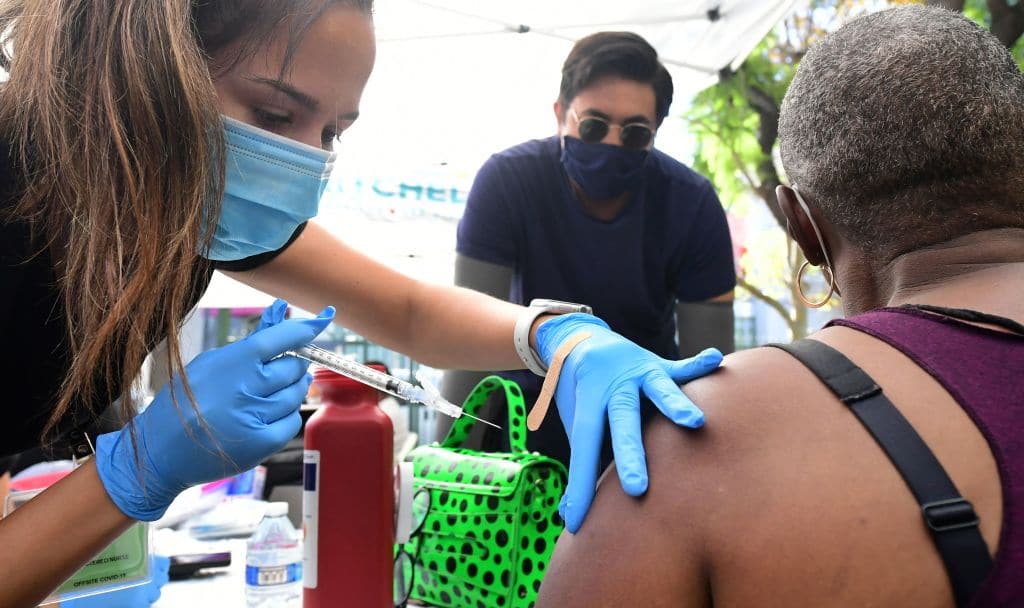The Omicron variant continues to spread widely across the globe, and its mutations have left scientists concerned about the efficacy of existing vaccines. However, early research indicates that existing vaccines – especially when supplemented by a booster shot – seem to indicate effectiveness against Omicron.
Omicron has taken the world by storm and triggered a deluge of travel restrictions and lockdowns as the festive season approaches. Despite almost 40% of the globe reportedly having received vaccinations, concerns about the possibility of Omicron’s increased transmissibility and possible vaccine resistance has scientists furiously at work to determine whether the variant is able to evade the protections offered by vaccines, with early data providing a glimmer of hope. The variant has been found in 57 countries so far and spreading strongly in South Africa according to the World Health Organization’s (WHO) latest epidemiology report, noting that the preliminary data seems to indicate the mutations in the Omicron variant reduce the ability of natural immunities to protect against reinfection. However, the WHO also cautioned that it is too early for conclusive characteristics to be drawn.
“Further information is needed to fully understand the clinical picture of those infected with the Omicron variant,” said the report.
The Omicron variant contains 37 mutations of previous iterations of COVID-19 and the vector in which possible changes of transmissibility and mortality occur in the spike protein. However, vaccines still seem to promote resistance to the Omicron variant, with two leading vaccine producers Pfizer and BioNTech having early research indicating that while two doses of these vaccines provide fewer antibodies against Omicron, a third booster shot significantly improved immune response.
“Our preliminary, first dataset indicate that a third dose could still offer a sufficient level of protection from disease of any severity caused by the Omicron variant,” said Ugur Sahin, the CEO of BioNTech in a joint press release with Pfizer on 8 December announcing the results of the preliminary research. Other treatments are also in development to combat the virus which seem to have effective results against the Omicron variant; GlaxoSmithKline, another pharmaceutical giant, has been producing an antibody treatment which has shown effectiveness against synthesized variants of Omicron.
The treatment, termed ‘Sotrovimab’, was recently cleared for use in the United Kingdom, and was shown to decrease the risk of hospitalization and death in people with mild to severe COVID-19 by some 79% in clinical trials. “We are confident that sotrovimab will continue to provide significant benefit for the early treatment of patients hoping to avoid the most severe consequences of Covid-19,” said co-developer of the treatment Vir’s CEO George Scangos.
New treatments and the likely efficacy of booster shots offer some hope in the face of the fourth wave of infections due to Omicron. However, in countries such as South Africa, where vaccination rates and booster uptakes are relatively low, concern around the variant’s spread are still rife, particularly since the country reported almost 20,000 new cases in the last 24 hours, with government deliberating further lockdown measures in response to the rise in cases, while trying to mitigate the economic hardship that hard lockdowns will bring.
The South African Health Products Regulatory Authority (SAPHRA) on Wednesday approved the rollout of booster shots for the vaccinated, the announcement coming just hours after Pfizer and BioNTech’s research indicating booster effectiveness was released. Other African powerhouses such as Nigeria and Kenya have taken diverging approaches to the booster shots; Nigeria has begun to roll out booster doses to their population, while Kenya has opted not to consider implementing booster shots until early next year.
However, since the rollout of booster vaccines on the African continent is still in its infancy and with vaccination rates still low, it remains to be seen if the rollout of additional doses will be sufficient to push back the fourth wave of COVID-19 infections.
